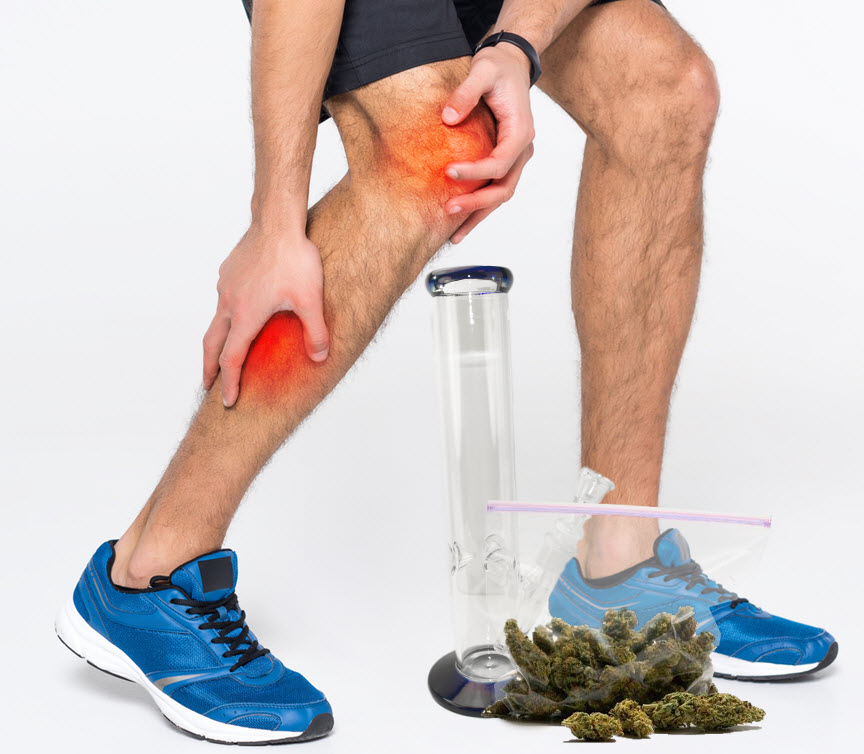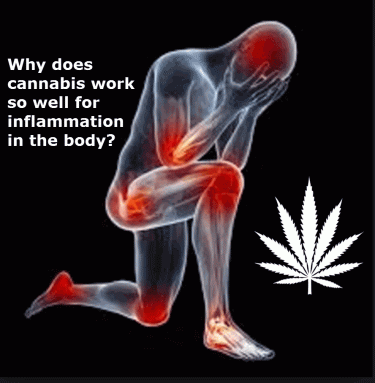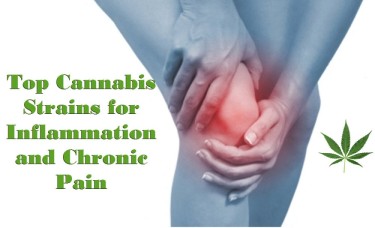
Inflammation and Marijuana – What is the Relationship Between Cannabis and Swelling Relief?
Regardless of how someone feels about inflammation or how much pain it accompanies, it remains an inevitable healthy response that keeps us alive. From bruising a finger to the aftermath of cancer treatments, inflammation is the body’s automatic response to any physical condition. There are times when inflammation can lead to extreme pain and adverse conditions due to a dysfunctional effect on the immune system. At this point, medication is needed to reduce pain and speed healing.
Recent studies indicate that cannabis may be a key anti-inflammatory agent. A few medications have been tested over the years and proven effective against debilitating and extremely painful inflammation. However, better options for the treatment of chronic diseases are being sought. Since most effective anti-inflammatory drugs are prone to undesirable side effects with prolonged use,
This piece explores the potential of cannabis to serve as a panacea for chronic inflammation and autoimmune diseases. We explore the relationship between cannabinoids, the endocannabinoid system and these disorders mentioned above.
What is inflammation?
You can think of inflammation as the body’s way of protecting and fighting against damage. In this case, damage could mean infection or injury inside or outside the body. For example, when you have an injury, the first thing you notice is that the affected area becomes red and swollen. This response is due to the immune system sending out a group of white blood cells to stop the bleeding and fight off any form of infection.
Within the body, the same reaction occurs around the vital organs and also in the blood vessels. Expressed in a simple way; the immune system causes any part of the body exposed to infection to become inflamed. Older people are more likely to struggle with chronic inflammation and use cannabis more often than younger generations.
Some have touted inflammation as a terrible thing. In contrast, it is a good reaction. It only gets bad when identified as pathological. According to Harvard Health, inflammation can be roughly divided into two groups; acute inflammation and chronic inflammation. Inflammation occurs in response to injury or disease and resolves within a few days, while chronic inflammation is long-lasting and occurs due to an ongoing autoimmune disorder or chronic condition (in worse cases, it could be fatal). .
Diagnosis and treatment of inflammation
This condition is self-diagnosable. The symptoms of inflammation can be easily identified, mainly when they are localized to one part of the body. Some of these symptoms are redness.
-
swelling
-
Increased sensitivity
-
a headache
-
mood swings
-
tiredness etc.
Most of the time, acute inflammation is nothing to worry about. However, chronic inflammation can be extremely dangerous. Medications are necessary to limit the extent of inflammation, speed up healing, and return the body to its normal state.
Antacids are sometimes used to reduce inflammation affecting the inside of the body. Other anti-inflammatory medications can be purchased over the counter or with a prescription. Some of these drugs include NSAIDs and steroids. inflammation could be
A possible treatment of cannabis
Cannabis is made up of cannabinoids that have therapeutic benefits for the human system. Its influence on inflammation has been studied in highly respected institutions and laboratories, and established theory is that the anti-inflammatory property of cannabis is linked to the endocannabinoid system.
The relationship between inflammation and the endocannabinoid system
CB1 and CB2 are the primary receptors in the ECS network. These receptors primarily respond to naturally occurring endocannabinoids in the body. In experiments on the human body, it was observed that inflammation triggered the release of anandamide and 2-arachidonoylglycerol. The whole process is quite complex.
Also, N-arachidonylglycine, a derivative of anandamide, exerts an effect on the induction of the orphan G protein-coupled receptor GPR18. This stimulation is responsible for macrophage cytosis (the process by which immune cells fight off infectious cells through ingestion). The study also showed that stimulation speeds resolution to reduce inflammation. The research suggested that the process has other undiscovered aspects, as no one has been able to determine whether or not natural inflammation begins and ends this way.
Using Cannabis to Treat Inflammation
Here are some ways cannabinoids can be delivered to the human body to treat ailments. It is important to note that most of these cases have not been approved by the FDA as a treatment for cannabis. The standard methods of ingesting cannabis are:
-
smoking
-
vaping
-
edibles and capsules
-
Sublingual Oils
If you are considering any of these products, make sure you do more extensive research before proceeding. Anti-inflammatory CBD products are also used to treat conditions in non-legal cannabis states.
CBD-based cannabis anti-inflammatory drug
CBD is a non-psychotropic cannabinoid responsible for treating medical conditions. It is the main ingredient in medicinal cannabis products. When ingested, CBD interacts with the ECS and inhibits the production of FAAH (a compound that breaks down anandamide). This inhibition prolongs the effectiveness of anandamide, which helps with inflammation.
It’s best to have CBD-based cannabis medication prescribed by a licensed physician in your state.
Benefits of Cannabis-derived Medicines in Inflammation
The compounds responsible for treating the symptoms are cannabinoids. They send a message to the brain.
Pain is the most common symptom of chronic inflammation. It is sometimes characterized by a burning sensation in the affected area.
Cannabis helps control inflammation, which reduces pain in these patients. The drug hasn’t shown any visible side effects in people who have used it, but that doesn’t excuse the fact that more research is definitely needed before a person can start using cannabis as an anti-inflammatory drug.
The root cause of the disease must be traced back. In some cases, it results from cancer, disease treatments, etc. Researchers say some people are born with a dysfunctional immune system and as such experience inflammation.
Conclusion
The full extent of the relationship between cannabis and inflammation has yet to be fully discovered. The endocannabinoid system plays a significant role in managing inflammation in both acute and chronic patients. The interaction between the two is currently unclear. Still, the future of anti-inflammatory drugs looks bright, and cannabis-based drugs could make it brighter.
Consult a doctor before switching from your NSAIDs and steroids to cannabis, primarily to treat inflammation.
CANNABIS AND BODY INFLAMMATION, READ MORE…

CANNABIS AND THE BODY’S INFLAMMATORY SYSTEM, READ THIS!
OR..

MARIJUANA STRAINS FOR INFLAMMATION AND CHRONIC PAIN

Post a comment: